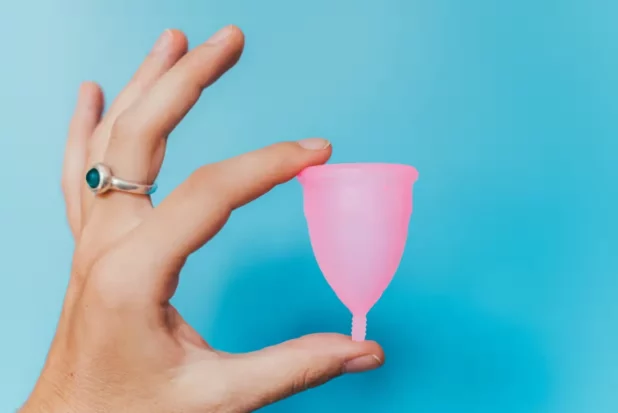— BIacks Taking L’s (@NsPostingFs) August 6, 2023
Well.
I actually already knew this.
Mabel Banfield-Nwachi writes for The Guardian:
“Us girls, we have a lot of problems down there and it’s an absolute nightmare,” one influencer says on TikTok, like a seasoned teleshopping host. She reels off a list that includes thrush, bacterial vaginosis (BV) and urinary tract infections – common issues that many women are too shy, insecure or squeamish to talk about. But she has an answer to these woes: vaginal probiotic pills. These are being touted on the social media site as magical new supplements that can improve the health of your vaginal microbiome.
But what is the vaginal microbiome? And does it need to be fixed? According to Ina Schuppe Koistinen, an associate professor at the Karolinska Institutet in Sweden and an expert in the subject, the term refers to the gene content of the microbes in that area of the body. “You can also call it the vaginal microbiota – or vaginal flora – and it means all the microbes that are present. That’s bacteria, but also viruses, fungi and all kinds of single-cell organisms.” We all have microbiota in other parts of the body, too, including on the skin and in the gut. The health of the microbiome is determined by the delicate balance of microbes.
A healthy vaginal microbiome would be dominated by lactobacilli, especially the species called lactobacillus crispatus. These bacteria are our first protection against infections. They help keep the pH of the organ low (yes, vaginas have their own pH, usually somewhere between 3.8 and 4.5) and create an environment that is hostile to other pathogenic bacteria that might knock the microbiome out of balance and cause infections such as BV and thrush.
Infections arise when this careful balance of bacteria is upset. The main culprits? Fragranced soaps, harsh detergents and antibiotics, which can kill off the “good” as well as the “bad” lactobacilli. Unprotected sex also exposes you to bacteria in other people’s microbiomes; the more partners, the more potential varieties. Smoking can have an effect, too, because it can reduce the prevalence of the bacterium that protects the area from infection, meaning your chances of developing thrush or BV increase.
“Most women have small amounts of fungi in their vaginas, but when they take over it can cause a fungal infection like thrush,” Schuppe Koistinen says. “Semen has a neutral pH and adds nutrients to the vagina that make bacteria other than lactobacilli grow and take over.” Menstrual blood can also affect and raise the pH level, making the environment less favourable for lactobacilli and leading to an unbalanced microbiota.
…
Keeping vaginas happy might sound like a minefield, but often what works is leaving them to do what they do best: clean and protect themselves naturally. “The vagina is a self-cleaning organ. It has its own way of keeping the balance,” says Michelle Swer, a consultant gynaecologist. This means you should avoid douching – trying to clean inside the vagina – because it can harm this balance, or exacerbate an existing problem. The vulva, on the outside, can be cleaned “with water and a mild soap only”.
Vaginas have an inbuilt “plasticity”: if the microbiome is disrupted, it can usually correct itself. “We are all made for having menses and sex, so if you have a healthy microbiome, it tends to go back to its normal conditions,” says Schuppe Koistinen. “If you live a healthy life and eat well, sleep well and have safe sex, then you normally don’t even have to think about it.”
There are, however, small changes you can make. Using a menstrual cup instead of a tampon or a pad can help, because it “catches” blood from higher up in the vagina, so blood doesn’t sit for long periods of time. Using condoms for the first few months of sex with a new partner can also limit the effects that contact with other bacteria can have on the microbiome. Introducing more fermented foods, such as sauerkraut, kimchi, kefir and kombucha, can be beneficial.
Really disgusting to write about this in a normal human newspaper. Women should have special secret ways to communicate this so the public is not exposed.
But… there is a point here.
Menstrual cup
I wouldn’t put that plastic thing in any of my holes.
Also, this “free bleeding” thing is repulsive and is witchcraft.
Gen Z women are ditching pads, tampons and embracing ‘free bleeding’ in latest trend https://t.co/rOQ90Zpgim pic.twitter.com/nCqMwlvHzK
— New York Post (@nypost) September 6, 2023
Obviously, you can put a piece of cloth down there.
Although arguably… it actually would be better to just let it run out naturally. But you can’t do that in current society. Women would have to have “bleeder sheds” that they would go live in during this process. They can’t just be walking around like that. It’s vile.
With the issue of killing good bacteria with these chemical solutions and so on, this is accurate and obvious, and it’s an issue with all of these modern chemical products people use on their bodies (for men, it’s soap, deodorant, cologne, etc.).
“The Science” should be helping with this. Instead they’re trying to forcibly modify our DNA and claiming that paying higher taxes and eating bugs will change the weather. It’s just voodoo type stuff with these people, while there are important issues at hand.
Most of these “women’s cancers” are caused by birth control. That is definitely the case with breast cancer. But with the cervical cancers… it could well be all these poisonous chemicals these stupid bitches are shoving in their holes.
This is the American way: “I have a hole, therefore I must shove chemicals into it.”
 Daily Stormer The Most Censored Publication in History
Daily Stormer The Most Censored Publication in History




